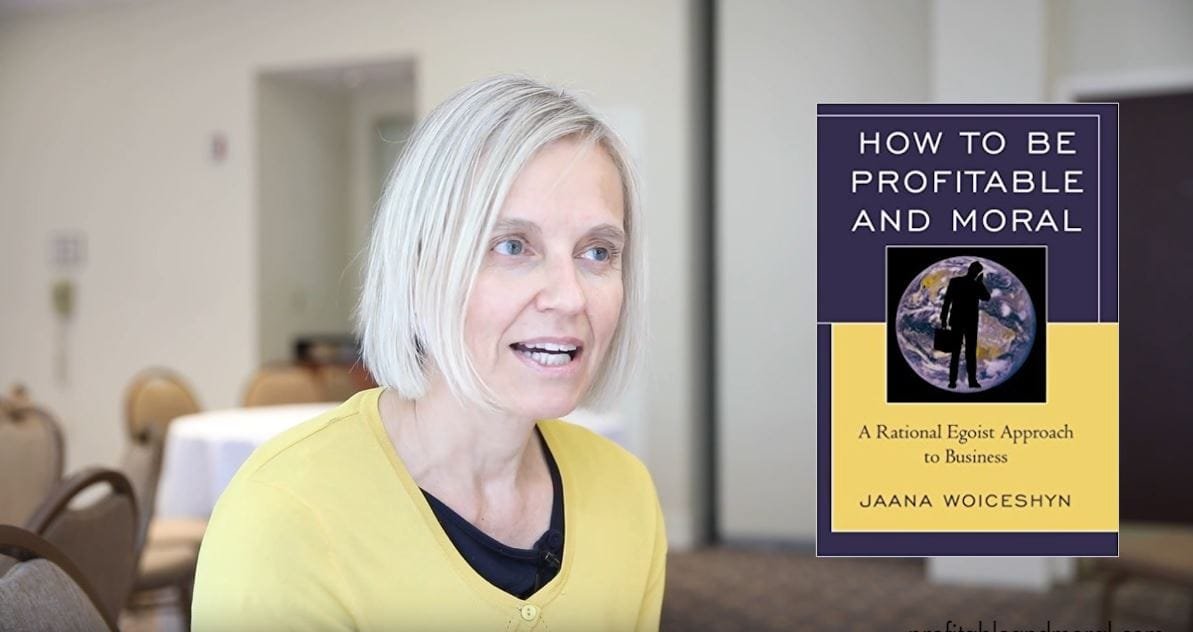Many people have a dim view of profits; they see them as the result of immoral exploitation by business for selfish gain. Typical of this view, an acquaintance once opined that privatization of a hospital would lead to poorer care for patients because the hospital would cut staff, pare down diagnostic tests, and skimp on the nutritional quality of meals to maximize profits. In other words, a profit-seeking company would not care about the quality of its products and services and their impact on their customers.
We know for a fact that companies cannot make profits – the amount of excess revenues of a business after its costs of production have been deducted – unless they produce and sell something their customers value and are willing to pay for. Yet, many business owners share the dim view of profits, at least in part. They feel their company’s profits are somehow immoral and they need to atone for them by “giving back” to society through charitable contributions or promotion of social causes.
The view of profits as exploitation comes from Karl Marx who argued that profits are “the surplus value” of workers’ labor that the capitalists (the business owners) appropriate and thereby exploit the workers. According to Marx, the workers deserve to keep the surplus, not the business owners who invested the capital that make the company’s operations possible and who bear the risk of its failure.
The view of profits as immoral and something to atone for is popular because of today’s dominant morality of altruism that advocates sacrificing values in selfless service to others instead of pursuing one’s self-interest and achieving values. Profit making is self-interested and therefore immoral in the altruist view. Marx drew on altruism in that his theory sought equity of outcomes by requiring those more able to provide for those with more needs. In other words, those who produce more should sacrifice to those who produce less.
Against altruism and Marxism, I argue that profits are moral – as long as they are based on the true value created and are not the result of physical force or fraud. (“Profits” created by criminal activity are stolen wealth and therefore an unsustainable disvalue). A quick examination of the 76 Canadians on this year’s newly-published Forbes Billionaires List (of 3028 names) indicates that most made the list by starting or operating businesses (or being heirs to such people) that provided value to their customers and thereby to their shareholders.
Profits are moral because they are wealth – an important value if we care about human survival and well-being. Wealth affords us many other values that our life and the enjoyment of if depend on: food, shelter, energy, transportation, health care, education, recreation, entertainment – all the things that poverty deprives us.
Profits are an important incentive for business that drives the competition to develop better products and services at a lower cost. Such competition is a win-win for all. Companies compete for the best employees to innovate new products, service, and processes who earn salaries based on their productive input that also creates job opportunities and earning power for others further down the chain of production and trade. Customers benefit from the new products and services that they are willing to pay for, or from lower prices that allow their dollars to go further. Suppliers gain from the increased trade, and shareholders see the value of their shares in the company increase.
In such a competitive system, the most productive people earn the most. But the inequality of income is not “unfair” or immoral. Competition and the earning potential motivate everybody to work to the best of their ability. There are more opportunities for all to raise their level of wealth, through more job opportunities, higher pay, and education. This is evidenced by the rising prosperity in countries with the freest competition (the United States and other countries with relatively free markets), in contrast to relative poverty in countries with controlled economies (the Soviet Union, China before Deng Xiaoping’s economic reforms, today’s Venezuela, and Cuba).
Profits sustainable in the long term can only be made through voluntary trade for mutual benefit between companies and employees, customers, and suppliers – not through exploitation. Such profit making through trade requires one social condition: freedom.
Freedom can be ensured only by a government that protects (and doesn’t violate) the rights of individuals against the initiation of physical force by others. Something to always keep in mind but especially at the election time (such as presently in Canada) when we have an opportunity to influence the kind of government we will get: one that will protect the freedom to trade and make profits, or one that will restrict such freedom with rights-violating regulations.




